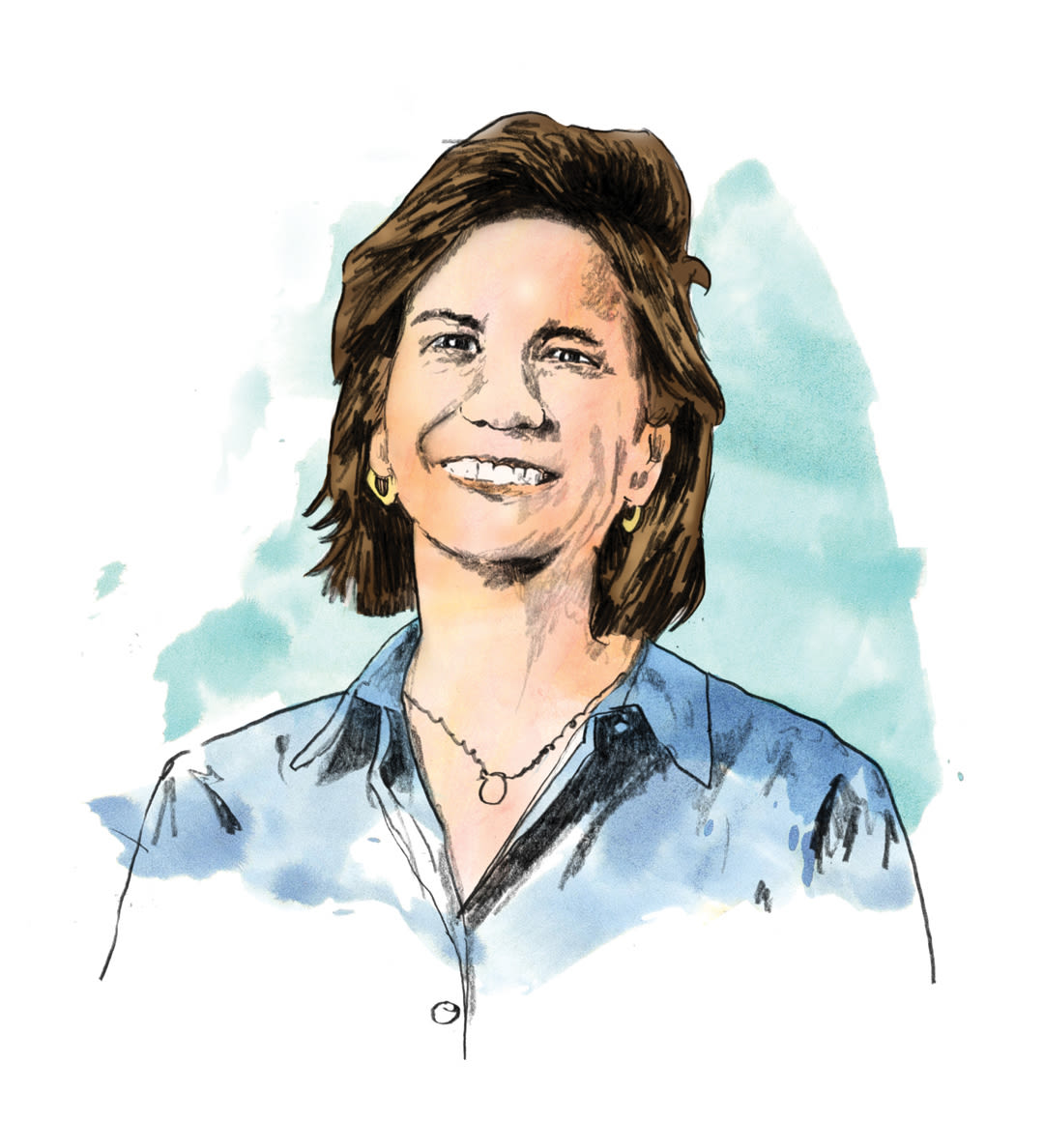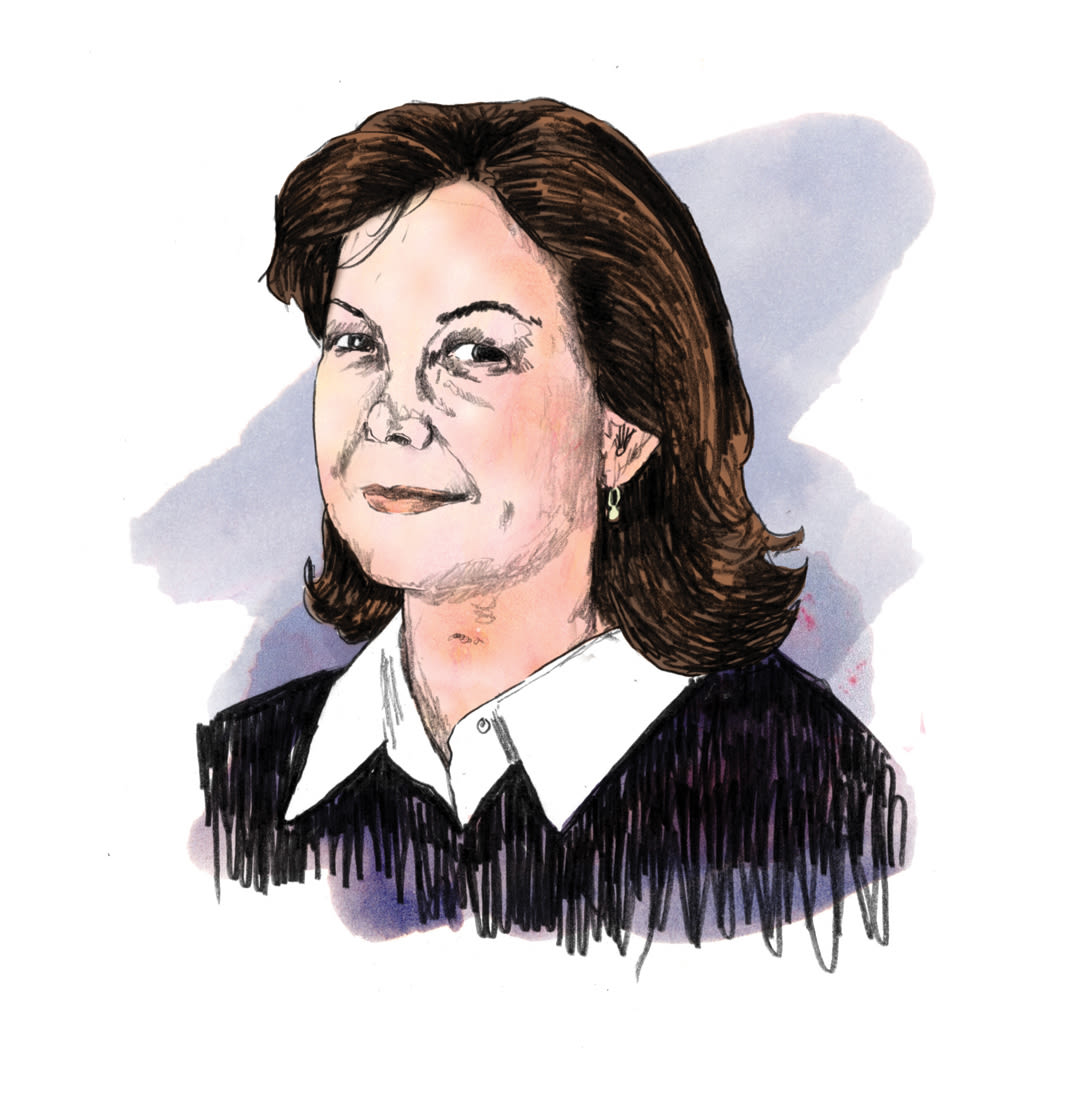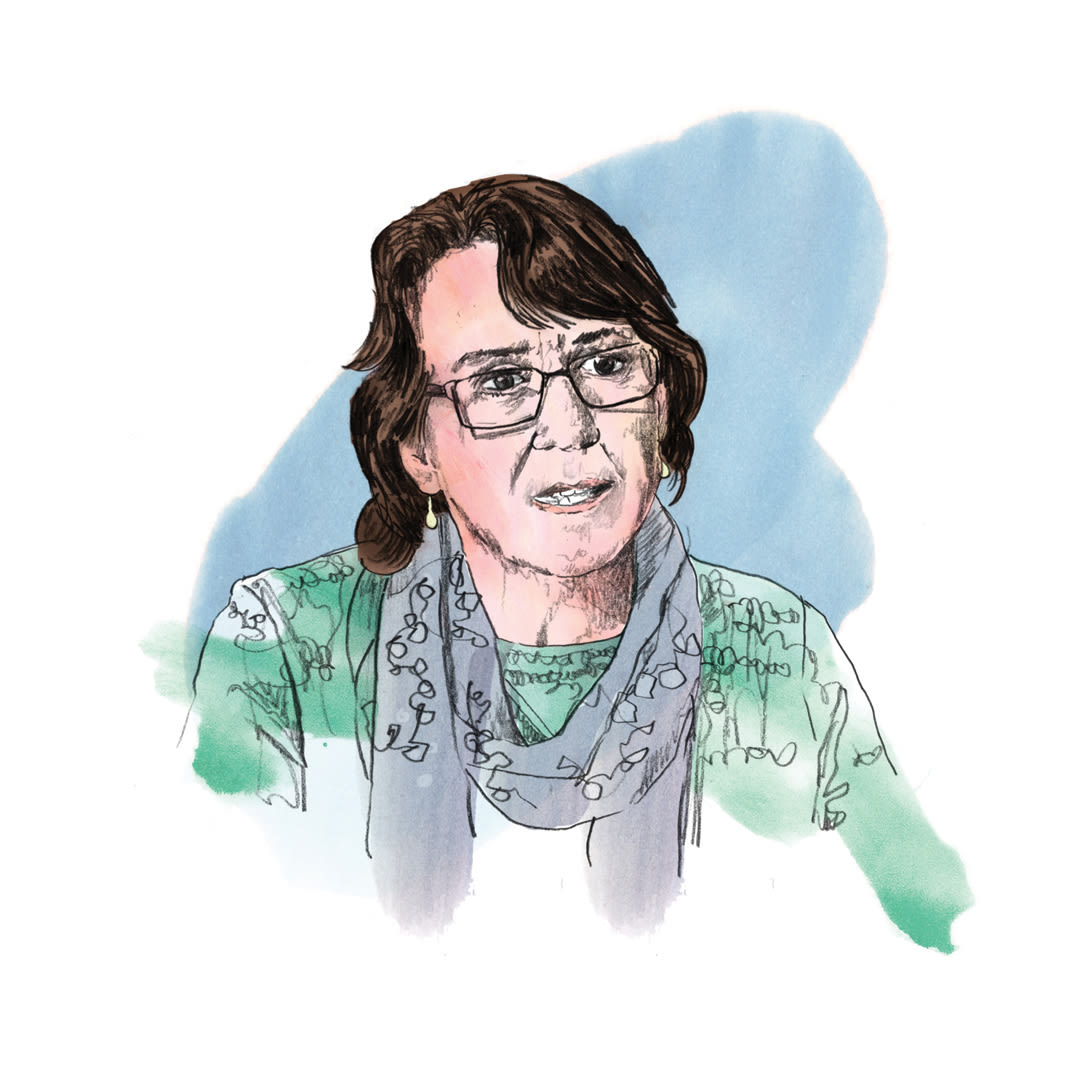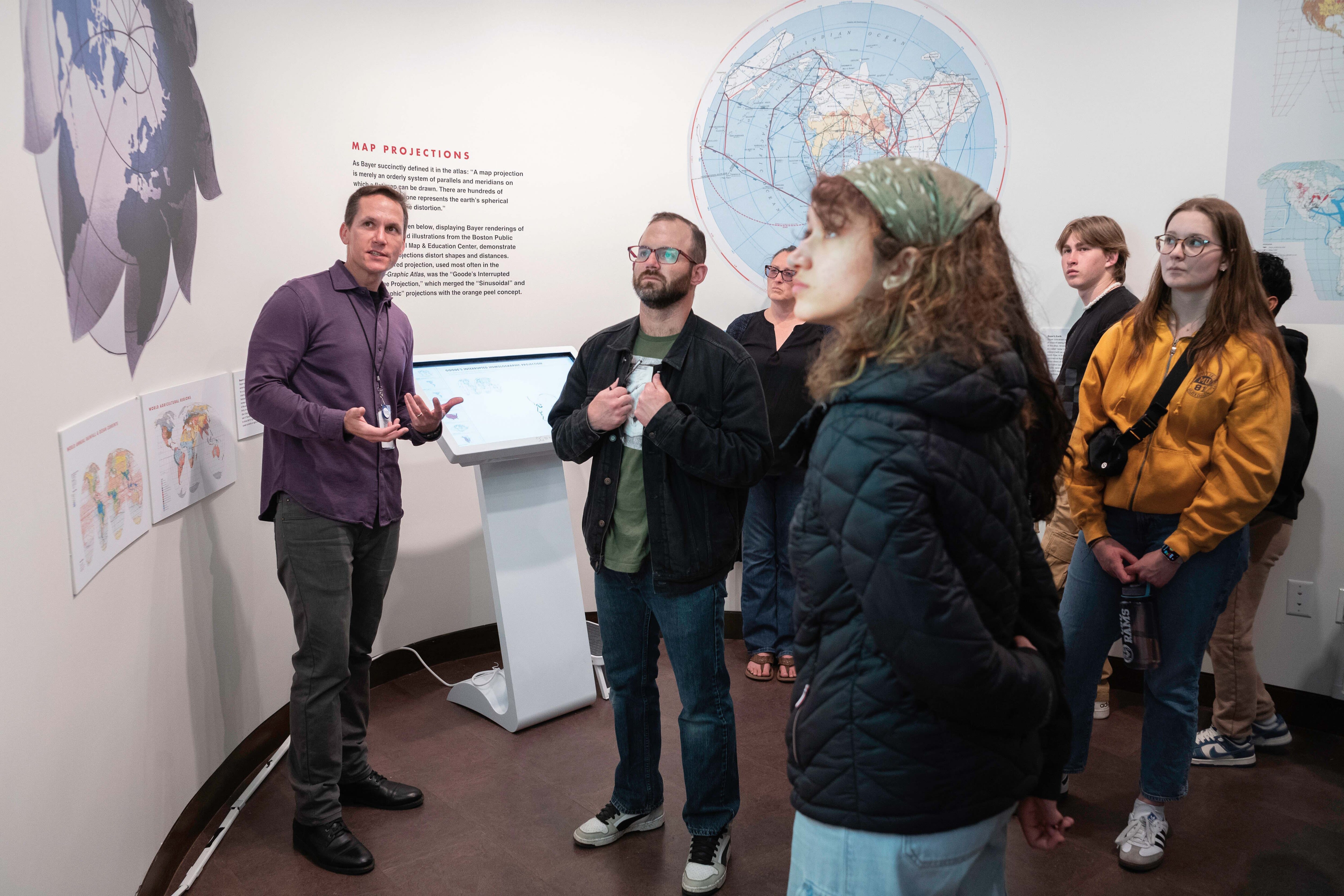
The Aspen Power 50
How do we define power? Is it the capacity to effect change? The skill to inspire and motivate others? Pure, unassailable force of will? In its many manifestations, power seems to boil down to one thing: the ability to make things happen.
Ultimately, an insatiable curiosity about what will happen here, and particularly who may make those decisions, was the inspiration for our first-ever list of Aspen’s 50 most powerful people. In compiling it (admittedly a subjective exercise), we considered power in five different categories—potential, recently exercised, positional, personal, and social—and ranked a number of influential locals accordingly. What we didn’t try to do was rank the finalists in any particular order; we figure if you’re powerful enough to make this kind of list in Aspen, you don’t need to be comparing yourself to anyone else.
Did we leave people out? Inevitably. And while some of the folks listed here will be obvious choices—mayors, sheriffs, captains of local industry—others may be more unexpected. In all cases, we invite your feedback, because thinking deeply about Aspen’s power players can only help us all continue to consider what we want Aspen to be. We hope this list can play even a small role in making that happen.
Read on to learn more about those who hold the reins in Aspen. And let us know if you agree or not. We’re already thinking about a power list 2.0.

Kitty Boone
Image: Scott Chambers
Kitty Boone, Vice President of Public Programs, Aspen Institute; Executive Director, Aspen Ideas Festival
Boone helps us realize the intellectual aspect of Aspen’s “mind, body, spirit” ethos by serving as our conduit to the visiting heads of state, pundits, activists, and artists who present at the 10-day Ideas Fest, which attracts some 3,000 attendees annually. Joe Biden, rapper Common, Supreme Court justices, and Caitlyn Jenner on stage at the Aspen Institute’s local campus? Their appearances were all thanks to Boone’s leadership. Her efforts have also exposed many a local and visitor to speakers who have inspired advocacy for social justice, education, and civil discourse.
Jim True, City Attorney, City of Aspen
Whether it’s behind closed doors or in a public meeting, True advises Aspen’s elected officials on the risks and benefits their decisions will have on the community. He arrived in the city attorney’s office almost a decade ago and quickly learned to navigate through local politics and city council’s high-stakes decision-making. True’s input can help sway city council to deny certain development applications—prompting developers to sue. Settlements have resulted in two large downtown buildings, including the Aspen Art Museum. True also advised council when it abandoned the controversial Castle Creek Energy Center project.
Alan Fletcher, President and CEO, Aspen Music Festival
As the head of one of the country’s premier music festivals, Fletcher oversees a $14 million annual budget, a student body of 360, a 50-member board, and more than 300 events each year. He managed to rebound after being fired, and subsequently rehired, in 2009 amid acrimonious haggling over downsizing during the Great Recession and the festival’s future. Now, in happier times, Fletcher has led planning and fundraising for a $70 million overhaul of the school’s campus; the final phase opened last summer.

Heidi Zuckerman
Image: Scott Chambers
Heidi Zuckerman, Director, Aspen Art Museum
Zuckerman had big ambitions when she took over the museum in 2005, and, by all appearances, she’s carried them out successfully. But not everyone considers building a large, contemporary museum in the heart of downtown Aspen a success. Pushing through the Shigeru Ban–designed structure, which opened in 2014, pitted the community’s old guard against a new, more elite demographic. Zuckerman met her critics face-on but stood her ground, convincing enough heavy-hitters to open up their wallets that she was able to raise more than $100 million and transform a beloved but small community museum into a world-class modern art institution.
Mitch Osur, Director of Parking, City of Aspen
Since Osur took over in summer 2015, he’s come between Roaring Fork Valley residents and one of their great loves—their cars. He convinced city council to increase metered parking rates in downtown Aspen by 50 percent last summer. The ensuing complaints came in droves. “I told them, ‘You’ll either kiss me or punch me in the face,’” he says of his experiment to free up parking spaces. Money from the price hike helps pay for a free downtown shuttle that transported 11,000 people in just three months. Strap on—or, perhaps, unbuckle—your seatbelts, as Osur says he has lots more ideas.
Michael Goldberg, Owner, Belly Up Aspen; Co-Owner, Matsuhisa
When it comes to a special night out in Aspen, Goldberg has a big hand in setting the tone. From its opening in 1997, Matsuhisa has elevated the local standard of Japanese cuisine—that exquisite slice of yellowtail sashimi topped with a sliver of jalapeño may be as close to a town dish as we’ll ever have. And for a decade plus, music lovers have been treated to some of today’s best performers on Belly Up’s intimate stage. Says Goldberg, who’s often up front taking the photos that adorn the club’s walls, “I’m as lucky as a person could be.”
Andy Hecht, Developer and Principal, Garfield and Hecht, P.C.
If Aspen is a Monopoly board, Hecht has Boardwalk and Park Place locked in. As owner/co-owner of nine buildings in the commercial core—East Hyman Avenue has playfully been dubbed “Hechtville”—he’s changed the look and feel with new structures that unmistakably vary from downtown’s traditional architecture. As a partner in law firm Garfield and Hecht, he’s also sued the City of Aspen multiple times over development decisions on his projects. Some of them ended in settlements, resulting in the Aspen Art Museum and two high-end commercial buildings with penthouses far bigger than what’s allowed.

Mark Hunt
Image: Scott Chambers
Mark Hunt, Developer
Hunt entered the Aspen real estate market from Chicago in 2010, then a couple of years later began amassing more than $100 million worth of downtown properties during the height of the real estate market. He and his partners—whom he won’t identify—now own more than a dozen buildings in the commercial core, with plans to redevelop some into hotels and high-end retail, others into, he promises, locally serving businesses. That’s an impressive portfolio of prime real estate, but what really has locals wary of Hunt’s next move is his status as landlord to several dozen businesses—in the past year, three of them have had to move house.
Charles Cunniffe, Principal, Charles Cunniffe Architects
A remodel of the Hotel Jerome brought Cunniffe here in 1979, and he’s been paying homage to the town’s history ever since. As one of Aspen’s premier architects, his influence over its aesthetic character is palpable, through both commissioned and pro bono projects. Cunniffe, who describes his style as “unfettered,” has likely designed more commercial buildings than any other current local architect, including the Isis Theatre and a recent renovation of the Wheeler Opera House. Now, he’s overseeing design of the city’s new public safety building.
Dave Ressler, CEO, Aspen Valley Hospital
Per Aspen’s famed boomerang effect, Ressler recently regained his power in the upper valley’s medical community after a three-year stint in Tucson and Grand Junction. All it took was one phone call to the national headhunting firm engaged by the hospital, and Ressler was back at his old post. During his initial nine-year tenure, he brought the hospital out of financial ruin, earned the respect of employees, and gained city council consent and a voter-approved $50 million bond issue for an 82,000-square-foot expansion.

Erin Fernandez-Ely
Image: Scott Chambers
Erin Fernandez-Ely, Pitkin County Court Judge
If you’re in trouble with the law, judge Fernandez-Ely is whom you want to be in front of. Her empathic approach gives lawbreakers a fighting chance to correct their mistakes. She was instrumental in establishing a mental health “wellness court,” which uses alternative sentencing that puts people in treatment instead of jail. “She is the most progressive, compassionate, innovative judge in the country at the county court level,” says Pitkin County Sheriff Joe DiSalvo. “She understands people have human weaknesses, and that they’re not all criminals.”
Craig and Samantha Cordts-Pearce, Restaurateurs
This epicurean power couple has been feeding Aspen’s collective appetite for more than a decade. As the owners of four popular restaurants—Steakhouse No. 316, the Wild Fig, the Monarch, and CP Burger—within their CP Restaurant Group, along with a handful of others that have closed or changed formats, the Cordts-Pearces are chief trendsetters in the local culinary scene (kale salad, anyone?) and determine a good portion of our menu options. They’re also one of the largest dining hospitality employers in town, with some 125 staffers. Next up: a new endeavor in Denver.
David Perry, COO, Aspen Skiing Company
Aspen is a company town, and Perry is a company man. Responsible for some 3,000 SkiCo employees, he’s on the ground, overseeing key functions like food and beverage service at the four ski areas, and rental and retail operations. Perhaps more importantly, Perry ultimately guides SkiCo’s marketing direction, including which potential guests he and his team decide to target as customers. If you see, say, more Australians or Chinese on the slopes, you can bet Perry had a hand in getting them here.
Rachel Richards, Pitkin County Commissioner
Likely no other Aspen politician travels on behalf of her constituents as much as Richards. She’s often on the road or in the air traveling around Colorado—she regularly testifies in the state house on everything from zoning laws to transportation to water issues to public lands—and to Washington, DC. Early on in her two-decade-plus political career, Richards realized just how many issues that impact us locally are decided at the state and federal levels. Ever since, she’s been looking out for us, one policy hurdle at a time.
Jim Horowitz, Founder/President/CEO, Jazz Aspen Snowmass
When Horowitz landed Stevie Wonder for the 2016 Labor Day Experience, he told the Aspen Times it was a “game changer” in terms of opening doors and increasing exposure for the nonprofit he founded in 1991. Successfully negotiating Wonder’s appearance was a feather in Horowitz’s cap—the culmination of 26 years of building JAS from a one-trick pony to a multi-pronged entertainment and educational organization. According to Horowitz, JAS’s longtime involvement in jazz education was what swayed the rarely touring Wonder.
Rich Burkley, Vice President, Mountain Operations, Aspen Skiing Company
To powder pigs, Burkley is the master of their domain. He oversees just about every aspect of our four-mountain playground, and the decisions he makes affect thousands of skiers, riders, and employees each day. He determines, for example, when the Aspen Mountain gondola carries the first riders on a powder day. Will the ski season start early or run longer? Also Burkley’s call. You know it’s going to be a good day when you see him on his porch the night before, looking up at the sky and waiting for the storm to move in.
Carl Bergman, Owner, Carl's Pharmacy and the Miner's Building
If Bergman were to shut off the lights at his two longtime businesses downtown, Aspenites might go into collective shock. For more than 50 years, we’ve relied on these well-stocked emporiums for everything from toothpaste to toys, washing machines to doormats. (Where else but the pharmacy can you get a bottle of wine, birth control pills, and a yo-yo under one roof?) As for the future, says Bergman reassuringly, “Destiny will take its toll, so our daughter will take over.”
Steve Barwick, City Manager, City of Aspen
With almost two decades at the helm, Barwick is the longest-serving city manager in Aspen’s recent history, which means he’s handled more political hot potatoes than anyone else in city hall. From his second-floor office there, he oversees a $160 million annual budget and some 300 employees, and makes decisions on quality-of-life issues like how often roads should be plowed. While Barwick ultimately answers to city council, he has free rein to hire the department heads who drive initiatives and set policies that impact every segment of Aspen’s citizenry. And for our elected officials, he’s a public source of advice and guidance.
Mike Kaplan, CEO, Aspen Skiing Company
As head of the Roaring Fork Valley’s largest business, Kaplan has ultimate authority for up to 4,000 community members’ employment. But he’s not your cookie-cutter CEO. His humble demeanor (his Twitter bio reads “ski bum”) belies a leadership philosophy that’s equal parts business acumen and passion for issues: increasing skier visits while lobbying for climate-change action; growing SkiCo’s hospitality and retail businesses while incorporating the arts; expanding operations, then assigning execs (himself included) to the front lines during busy periods; and hammering the importance of redevelopment while prioritizing community engagement. Nonetheless, SkiCo likely gets the most cheers for extending the ski season. It’s happened five of the last nine years.

Nan Sundeen
Image: Scott Chambers
Nan Sundeen, Director, Pitkin County Health and Human Services
For 25 years, Sundeen has run the county’s social safety net, overseeing an ever-growing slate of services and constantly lobbying for the needs of poor, vulnerable, and otherwise underserved locals. Is it really an uphill battle seeking funding and support for one of the wealthiest counties in the country? “Always,” says Sundeen, who notes that the county’s population overall has gotten poorer since 2008. Yet her persistence and passion have resulted in two major accomplishments this year alone: the new Aspen Family Resource Center and plans for expanded health-care facilities in Basalt for low-income residents.
Bill White, President, Alpine Bank
White is responsible for a lot of money—like, nine figures’ worth at any given time. Multimillion-dollar home sales and other lucrative local industries make banking a good business, and Alpine Bank has the highest share of deposits (31 percent, or $400-plus million at last count) in Pitkin County—with the Aspen branch claiming the lion’s share of that. But the Aspen clientele also includes numerous employee-housing and small-business owners, many of whom White has gotten to know after 21 years in town. With White as the bank’s head lender, “it’s local people making local decisions to help locals,” says White’s boss, Regional President Steve Briggs.
Markey Butler, Mayor, Town of Snowmass Village
As the town’s first female mayor, Butler led its council through a series of thorny issues in her first two-year term, including a controversial new roundabout, a proposed property tax increase for local schools, and a complex land-use application to restart construction on the long-stalled Base Village. During often-contentious public negotiations with the developer, the at-times-controversial Butler stood tough, telling an exec, “Take off the tie. We’re not New York,” according to the Aspen Daily News. As executive director of Hospice of the Valley, she also has a soft side, and makes civility and healing a town priority.
Soledad and Bob Hurst, Philanthropists
This financial power couple (he was vice chairman of Goldman Sachs; she, an investment banker) turned their philanthropic focus to local nonprofits when they made Aspen their permanent home. Bob chairs the board of the Aspen Music Festival and School and is a trustee and executive committee member of the Aspen Institute. Soledad serves on the boards of Theatre Aspen, Aspen Community Foundation, and Aspen Country Day School. Benefactors of the Hurst Theatre, Hurst Lecture Series, and Hurst Hall, the pair have also been involved with the Aspen Art Museum, Jazz Aspen Snowmass, and Anderson Ranch, which honored them with its Service to the Arts Award.
Peter King, Mountain Manager, Aspen Mountain
In his role for the past decade, King may not be in charge of the biggest, most visited local ski area (that’s Snowmass), but he likely fields the most requests for events and special uses—people want to be on the in-town mountain, he says. Whether it’s a big-air contest, private mountaintop party, or a World Cup ski race, King figures out how to accommodate those requests while keeping the general skiing public happy. Luckily for local schussers, King also upholds the tradition (except on powder days) of opening the Silver Queen Gondola 10 to 15 minutes before the official 9 a.m. bell.

Karim Souki
Image: Scott Chambers
Karim Souki, Co-Founder, Ajax Holdings
Starting in late 2012, Ajax Holdings went on a downtown buying spree. The family business (which Souki moved here to run) first snapped up beachfront retail at the base of Aspen Mountain that’s now home to Performance Ski. Next was Coldwell Banker Mason Morse Real Estate, where Souki is vice president of development, and the building that now houses the firm’s HQ. Through Ajax Holdings, Souki is also landlord of several prominent Hyman Avenue addresses and multiple residential properties, including Aspen Valley Ranch in Woody Creek, where Hillary Clinton held a recent fundraiser. More’s likely to come—Souki’s job description includes “analyzing the return potential for new opportunities.”
Bert Myrin, Aspen City Councilperson
As a second-year councilperson, after defeating longtime (and previously unbeaten) politician Mick Ireland, Myrin’s ability to gather grassroots support and force referendums on local issues has changed our political landscape. He led the effort to change Aspen’s home rule charter, effectively putting control over development in the hands of voters. He also rallied to get a controversial hotel project defeated at the polls; the measure lost by a 2-to-1 margin in spite of supporters outspending opponents 10-to-1. Myrin remains humble, deflecting praise, but Mayor Steve Skadron credits his colleague with doing more to hold City Hall insiders accountable than anyone else.
Amy and John Phelan, Philanthropists
Among Aspen’s many philanthropists, the Phelans have had perhaps one of the most tangible impacts; their phenomenal support of the Aspen Art Museum (AAM) has ensured free admission in perpetuity. Considered among the world’s top collectors (Amy has served on boards and councils at the likes of the Guggenheim, MoMA, and the Whitney), the pair have played a key role in heightening Aspen’s profile in the art market. John is co-president of AAM’s board, and Amy chairs the museum’s annual ArtCrush, a multimillion-dollar fundraising gala that draws art world luminaries to Aspen each August.
Craig Morris, Co-Owner, Aspen Snowmass Sotheby's International Realty
Of the nearly 700 local real estate agents, Morris stands out for two reasons. Whereas nearly everyone claims to specialize in luxury, Morris indeed plays in the top echelon, with 15 listings over $10 million as of mid-September; more than $2 billion in property sales during his 25-year career; and the highest sales volume in the Roaring Fork Valley for 12 of the last 13 years. As co-owner and co-founder of the valley’s largest real estate firm, Morris also oversees 180 brokers who collectively sold $1.57 billion in 2015.

Steve Skadron
Image: Scott Chambers
Steve Skadron, Mayor, City of Aspen
Skadron takes his job as a representative of the people seriously, evident through his thoughtful, calculated statements (both public and private) and policy decisions based on what he hears on the streets and slopes. “Someone said he responds to every email he gets—that’s not normal,” quips City Councilperson Bert Myrin. Recently, Skadron oversaw a moratorium on commercial development downtown and reversed a controversial decision on use of the Power Plant building. He’s big on quality of life, too. Want another bike rack? Call the mayor, and it’ll be there before you know it.
Richard Pryor, Police Chief, City of Aspen
Where previous Aspen top cops didn’t always see eye-to-eye with Pitkin County’s liberal law enforcement policies (see: Joe DiSalvo), Pryor fully embraces an even-handed approach (he doesn’t even like to carry a gun). “Why do we have ‘community’ in front of the word ‘policing’? Shouldn’t this just be the way it is done everywhere?” he told this magazine. But in a city that counted more bear incidents than traffic citations last year, Pryor firmly supported his officers’ decision to use force in a controversial 2015 arrest of a juvenile for alleged marijuana possession. Otherwise, his department earned 97 percent of respondents’ support in the last community survey.
Elizabeth Milias, Blogger, The Red Ant
Since 2008, political watchdog Milias has published The Red Ant, a 2,500-subscriber blog with detailed and scathing critiques of public policy, such as affordable housing and development, and public officials. A voice for a growing and agitated conservative minority in this notoriously liberal town, the retired Bush administration appointee (she did PR for the Defense Department) also regularly speaks at city council meetings, and, like Donald Trump, doesn’t censor herself into political correctness. Two recent causes ended in her favor: the city backed off from plans for a large new city hall and from a proposal to turn the former art museum into a brewpub.
Gena Buhler, Executive Director, Wheeler Opera House
Since becoming leader of Aspen’s most prominent performing arts venue in spring 2015, Buhler has been hard at work expanding the local cultural diet. The former booking agent and theater director of Vail’s Vilar Center aimed to bring bigger names to the city-owned, 127-year-old Wheeler—then landed the Beach Boys and a $265,000 budget supplement for increased, higher-profile programming. She’s launched a membership club for locals and is cultivating partnerships with other arts programmers, such as Belly Up Aspen. Says Buhler, “It’s all about putting good ideas and good people together for amazing outcomes.”
Andy Gunion, East West Partners
It took four attempts over some 15 years, but East West Partners is finally acquiring a share of Snowmass’s still-to-be-completed Base Village, and the project’s pilot is Gunion. Managing the joint venture on behalf of partners Aspen Skiing Company and KSL Capital Partners, Gunion is steering toward an end-of-2016 closing on the Base Village properties and their associated development rights, then restarting—and eventually completing—construction on the 1.1 million-square-foot project, of which less than 40 percent has been built.
Mick Ireland, Political Consultant
After 20 years in public office—including three county commissioner terms and three as Aspen mayor—Ireland has left his mark, shaping policies on favorite causes like affordable housing, public transportation, and growth control. Now he works behind the scenes, unobstructed by the divisiveness that marked his elected tenure (he survived three recall attempts). Armed with a deep understanding of demographics and unflagging stamina for grassroots campaigning, Ireland’s most recent roles include field manager for congressional candidate Gail Schwartz and consultant for the Gorsuch Haus hotel project.
Barry Crook, Assistant City Manager, City of Aspen
Likening his role to that of a group vice president in a corporation—he serves as middleman between the City of Aspen’s departments and elected officials—Crook regularly navigates the city through some impactful policy issues. Currently he’s collaborating with private-sector partners on developing three city-owned parcels to expand affordable rental housing inventory and considering a potential overhaul of capital reserves policy that would affect 75 employee-housing HOAs. Also on Crook’s big-ticket list—expanded child care facilities. He must conceive of a plan to address Aspen’s baby boom and then execute it, pending city council approval.

Jim Crown
Image: Scott Chambers
Jim Crown, Managing Partner, Aspen Skiing Company
While not exactly a mom-and-pop resort, the Crown-family-owned Aspen Skiing Company is one of the few major players not to have consolidated, acquired, or sold out in recent years. But with trends increasingly pointing in that direction—most notably, Vail Resorts’ $1 billion acquisition of Whistler Blackcomb—it could. Hence Crown’s power in this company town: If the family decides to sell SkiCo tomorrow, the trickle-down effect would be enormous, impacting everything from lift ticket prices to employee housing, environmental policy to several thousand local employees.
Billy Stolz, Principal, Caribou Club
For 26 years, the distinctive Stolz has been the keeper of exclusivity at Aspen’s original private club. If you’re not already a member, you’ll need to impress him enough to get past his station at the bottom of the red-carpeted stairs that lead to this A-listers’ sanctuary. On a nightly basis, Stolz—whose reputation has earned him the nickname “Dr. No”—hears all sorts of justifications from those seeking entrance. Once, a hopeful but arrogant patron tried to belittle Stolz, saying he could “buy the place 10 times over.” Stolz’s response: “Please do, so I don’t have to deal with people like you.”
Lynda Resnick, Trustee, Aspen Institute
As an active member of the Aspen Institute board’s executive committee and chair of its marketing and communications committee, the highly visible Resnick plays a greater role in the think tank’s programming than your average large-dollar donor. Through a $15 million endowment, she and husband Stewart have ensured the continuation of the Aspen Action Forum—a launchpad for service ideas—through 2030. This co-owner and marketing maven of The Wonderful Company (a $4 billion purveyor of nuts, citrus, flowers, and juice) also lends her expertise and social skills to the Institute’s flagship public event, the Aspen Ideas Festival.
Mac Smith, Patrol Director, Aspen Highlands
A patrol director’s responsibilities enter a whole new stratosphere when you consider Highland Bowl, the 800-acre, avalanche-prone, steep-and-deep terrain that’s open to the public largely because of Smith’s persistence over two decades. Besides making decisions throughout the ski season that allow patrollers to tame this powder playground, Smith oversees innovative pre-season programs—bootpacking and Powder Posse—that increase snow safety, let locals earn passes, and deliver first tracks to lucky takers. The adventurous lifetime local’s not done yet—since fulfilling another dream of opening Deep Temerity to the public in 2005, he’s set his sights on additional drool-worthy, improbable terrain in Loge Bowl.
Michael Kinsley, Former Pitkin County Commissioner
After learning he was among Aspen’s power players, Kinsley quipped, “It’s particularly heartwarming to know I made the list because I’m not dead yet.” But once Kinsley, 69, passes on, there will be millions of dollars to be made. That’s because Aspen’s Centennial affordable-housing complex was approved in 1984 with a stipulation: 21 years after the last of the county commissioners who approved it dies, the property’s deed restriction will be lifted, allowing owners to sell on the free market. Kinsley is the last man standing. The joke goes that in some other places, he would have been “whacked” long ago.
Julie Kieffer, Compliance and Qualifications Specialist, Aspen Pitkin County Housing Authority
If anyone can force you to get your life in order, it’s Kieffer. A phone call or email from her means she wants your personal and financial status—in detail. As the housing authority’s enforcement officer, she makes sure locals are—and remain—qualified for the subsidized program based on employment and income. She audits tax returns at random, as well as in response to complaints by others. She says potential homeowners often resort to name dropping, hoping to impress her enough to get a foot in the door.
David Eller, Region 3 Director, Colorado Department of Transportation (CDOT)
As thousands of people every day can attest, commuting to Aspen ain’t easy. Overseeing 15 Western Slope counties, Eller calls the shots on engineering, maintenance, and operations on Highway 82 and beyond, including aspects that affect your day-in, day-out driving experience—like when the Aspen roundabout is paved or the Castle Creek Bridge repaired. Although he usually leaves on-the-ground details to his teams, his biggest recent project, rockfall mitigation in Glenwood Canyon, involved daily decisions on the $5 million engineering jigsaw puzzle that followed last winter’s 10-day highway closure that disrupted tourism, commuters, and delivery of basic goods. Eller’s highest priority is public safety: “If CDOT’s doing its job, we’re out there saving lives.”
Michael Brown, Developer and Hotelier
Brown has been the public face of HayMax Capital (the investment and development firm he runs with brother Aaron) since it entered the local real estate scene in the mid-2000s. In addition to owning the Molly Gibson Lodge and Hotel Aspen, both of which have approvals for expansion, the Browns are part of a partnership aiming to build the Lift One Lodge, on a key parcel at the western base of Aspen Mountain. How that side of Ajax will be developed—including the competing Gorsuch Haus hotel proposal—lies largely with the Browns for the moment.
Bill Tomcich, President, Stay Aspen Snowmass
As head of the local central reservations agency, Tomcich serves as the liaison to airlines flying in and out of Aspen’s airport, Sardy Field. For two-plus decades, he’s been a behind-the-scenes wheeler and dealer, negotiating with execs at major airlines to ensure we have the commercial air service necessary to support our tourist-based economy. That includes a 23 percent increase in seats over the past four years. While Aspen SkiCo is now absorbing Stay Aspen Snowmass, Tomcich will remain in the pilot’s seat when it comes to brokering the sky.
Jody Cooper, Home Mortgage Consultant, Wells Fargo Aspen
For Aspen-area worker bees able to make the move to home ownership, Cooper is often their first stop. As the go-to mortgage consultant for much of her 23-year career at Wells Fargo, Cooper has made it possible for hundreds of locals to become homeowners. She oversees a team that helps secure loans for workers seeking to buy a dwelling from the Aspen Pitkin County Housing Authority. When a local goes to the housing office saying that they’ve been pre-approved, it’s Cooper’s word that carries weight.
Mendel Mintz, Executive Director, Chabad Jewish Community Center of Aspen
When Rabbi Mintz arrived in 2000 to establish the local Chabad congregation, it caused some uproar among Aspen’s historically liberal, Reform-oriented Jewish community, while others welcomed the tradition and structure of this close-knit Hasidic movement. Since then, Mintz and wife Lieba have drawn in plenty more, culminating in the 2014 opening of the Chabad Aspen Jewish Community Center—an $18 million synagogue and events hub funded entirely by local and second-home owner donations solicited by Mintz.
John Rigney, Vice President, Sales and Events, Aspen Skiing Company
Since Rigney took over SkiCo events in 2001, shortly before the Winter X Games debuted here, his role has been that of persistent suitor. ESPN, which produces the youth-fueled economic and marketing bonanza, has threatened to break up with Aspen several times, but Rigney, as SkiCo’s lead negotiator, has helped convince them to stay put. His team’s ability to overcome relationship challenges also helped secure this winter’s World Cup ski racing finals, which Rigney himself calls “likely the biggest ski racing event ever held in Aspen.”
Gary Vavra, Transportation Director, Aspen School District
Figuring out how to transport up to 1,700 kids each day is no mean feat, and Vavra must do so this year on a reduced budget with consolidated bus routes. Add some spicy Rocky Mountain weather, and things get more complicated. Vavra, whose snowstorm-assessing responsibilities include driving the trickiest bus routes in the early morning, makes the call on snow days along with the school superintendent. The decision’s impact can be temporarily life-changing: the gift of a family powder day or a panic-inducing scramble for child care.
Gary Tennenbaum, Director, Pitkin County Open Space and Trails
As the brand-new director of one of Pitkin County’s most tangible-to-the-public departments, Tennenbaum oversees a $5.5 million budget, a mill levy estimated to yield $11 million this year, 5,000 acres of land, 15,000 acres of conservation easements, and 70 miles of trails. This year, the 14-year employee also had a hand in planning parking and access changes at North Star Nature Preserve, new trails in Emma, a nest-side osprey cam debut, and an evolving trail network between Aspen and Snowmass Village. Plus, he now oversees his former boss.

Joe DiSalvo
Image: Scott Chambers
Joe DiSalvo, Sheriff, Pitkin County
Like his two predecessors, DiSalvo sets the tone for a population that favors community-centered policing. He refuses to participate in federal drug raids and takes a live-and-let-live approach to anything that isn’t a public safety issue. He welcomed the legalization of marijuana (but helped form the Valley Marijuana Council for dialogue and education) and was one of a few sheriffs who didn’t participate in a 2013 lawsuit challenging Colorado’s then-new gun-control laws. But not everything under his purview relates to drugs and crime—DiSalvo is also the county’s fire warden, oversees search and rescue operations, and has adopted the practice of billing high-profile visitors for the security his department provides.














































